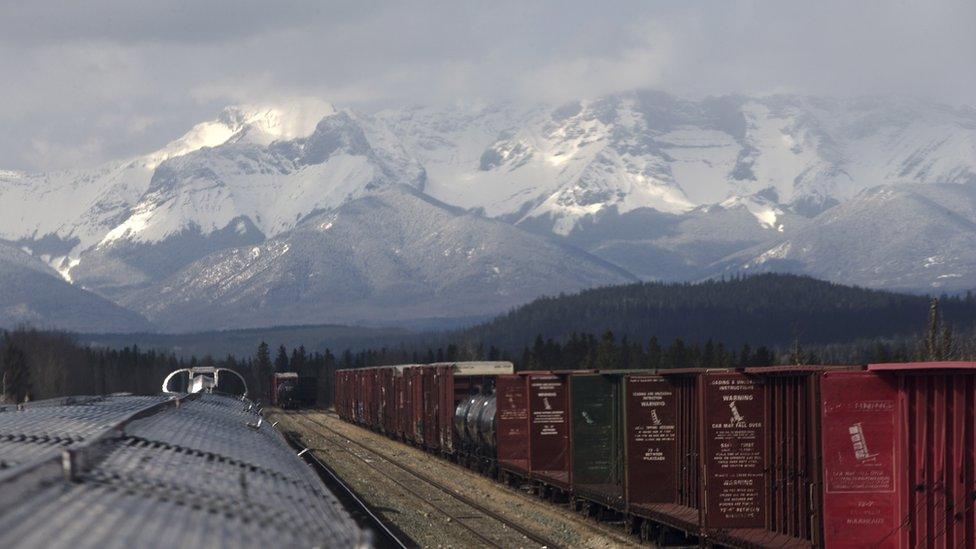Canada's CN rail system shut over blockade
- Published

A major Canadian rail company is shutting down trans-continental train services amid blockades protesting a pipeline in British Columbia.
CN Rail says it will be forced to shut down its eastern network, which will effectively stop all cross-country freight trains.
The stoppage will also affect passenger trains nationwide, which use CN tracks.
More than 150 routes had been cancelled previously amid protests against the Coastal GasLink pipeline.
Blockades against the proposed pipeline, which Prime Minister Justin Trudeau's government says invigorate natural gas exports in British Columbia, began last week.
Its route cuts through indigenous Canadian land.
JJ Ruest, CN's chief executive, called the train stoppage a "regrettable" situation, but said the cancellations were due to circumstances "beyond our control".
"Our shutdown will be progressive and methodical to ensure that we are well set up for recovery, which will come when the illegal blockades end completely," Mr Ruest said.
Some 5 million Canadian commuters use the intercity passenger services of Via Rail on tracks mostly owned by CN. Thousands have already been forced to find alternative means of travel.
CN said the stoppage may also lead to temporary layoffs.
Prime Minister Justin Trudeau has written to the indigenous leaders at the heart of the rail blockade, and promised to send ministers to help reach an agreement.
"As you know, our government has been clear that there is no more important relationship to me and to Canada than the one with Indigenous peoples," Mr Trudeau wrote.
What is the issue?
The Coastal GasLink pipeline is a 670km (416 miles) pipeline that would ship natural gas from north-eastern part of the province to the coast.
The C$6bn ($4.5bn, Β£4bn) project in a remote part of the province about a day's drive from Vancouver has been in the works since 2012.
Some 28% of the pipeline route passes through Wet'suwet'en lands.
Coastal GasLink said it has reached deals with 20 elected indigenous councils along the route to move ahead with construction, including some Wet'suwet'en councils.
But Wet'suwet'en chiefs oppose it and say they, not the community's elected officials, hold authority over traditional lands. They have warned that the project will cause pollution and endanger wildlife.
For years, protesters have erected camps along the proposed pipeline route to prevent access to construction sites.
Protests supporting Wet'suwet'en hereditary chiefs have taken place across Canada
In February, police enforced a court injunction and cleared the camps, arresting people in the process.
Meanwhile, other blockades have been erected across the country in solidarity, disrupting rail lines and ports.